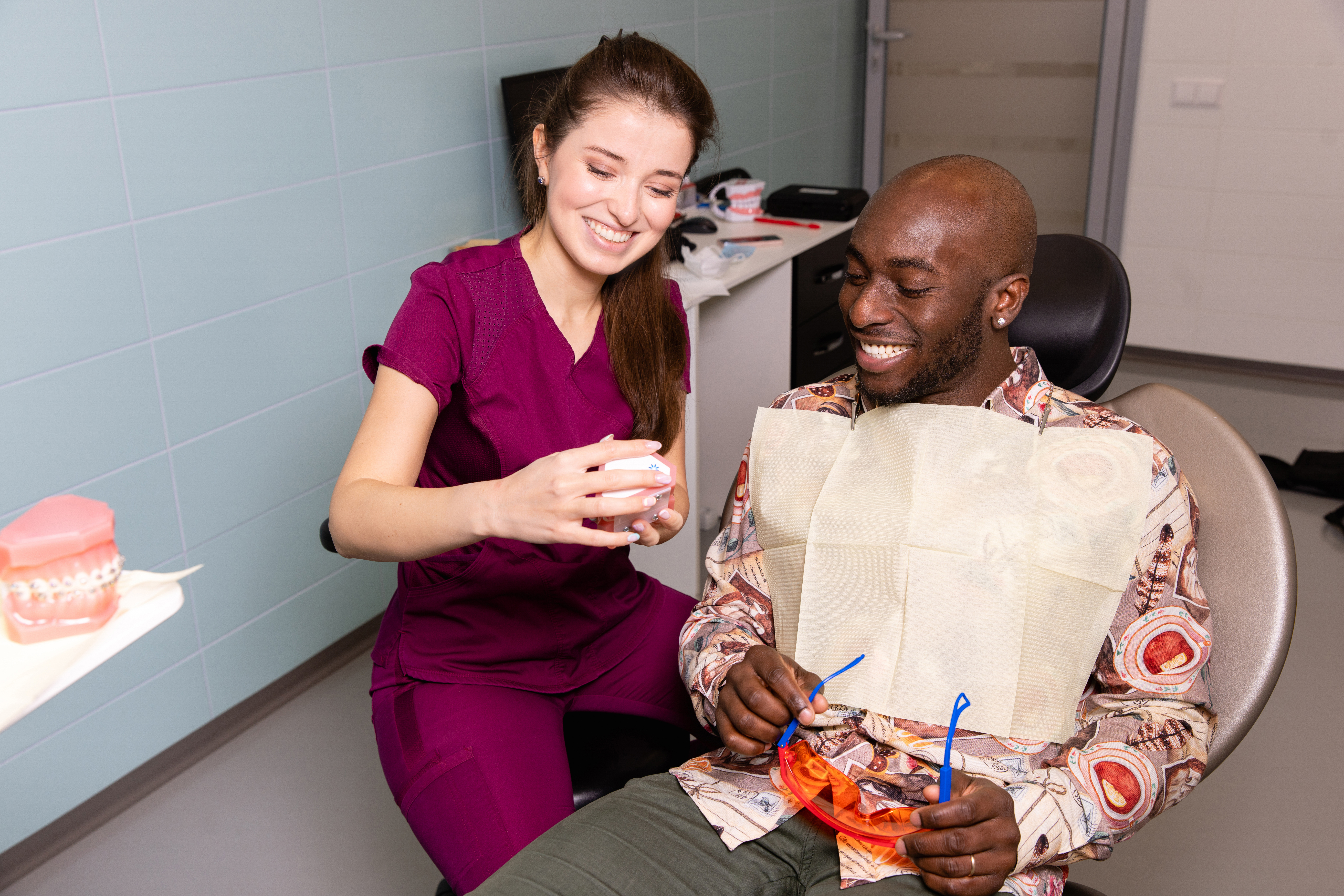So what is a cavity? It may be unpleasant to think about this, but your mouth is full of bacteria; some of which can be harmful to your teeth and gums. This bacteria feeds on the sugars in your foods. That process produces acid that can wear away at the enamel of the teeth causing tooth decay or a cavity.
What does a cavity feel like?
In the early stages when decay is in the outer part of your tooth, there likely won’t be any outward sign. Once the decay has reached the softer tissues inside the tooth though, where the dentin and nerves are, you might begin to be able to detect a cavity. Here are some clues:
Sensitivity
When you have a cavity, your teeth might feel a little sensitive to heat or cold or sweet substances. The pain might be mild or it can be quite intense. Some people also experience discomfort when they bite down.
Tangible signs
Depending on the size and location, you might be able to see it. There may be a grey, brown or white mark on the surface of the tooth, or an actual hole. You might be able to feel a hole with your tongue.
Toothache
Whether it only happens when you’re biting something or you feel constant nagging pain, a toothache is an indication that you have a cavity. If you are experiencing pain, please come see us to get it examined right away!
The best defense
Especially in the early stages of a cavity, you may have no indication that tooth decay is occurring. Even if you take care good care of your teeth and you’re diligent about brushing and flossing, the best way to combat tooth decay is to make the time to visit the dentist twice a year. Your biannual checkups allow us to catch tooth decay before it becomes a problem.








